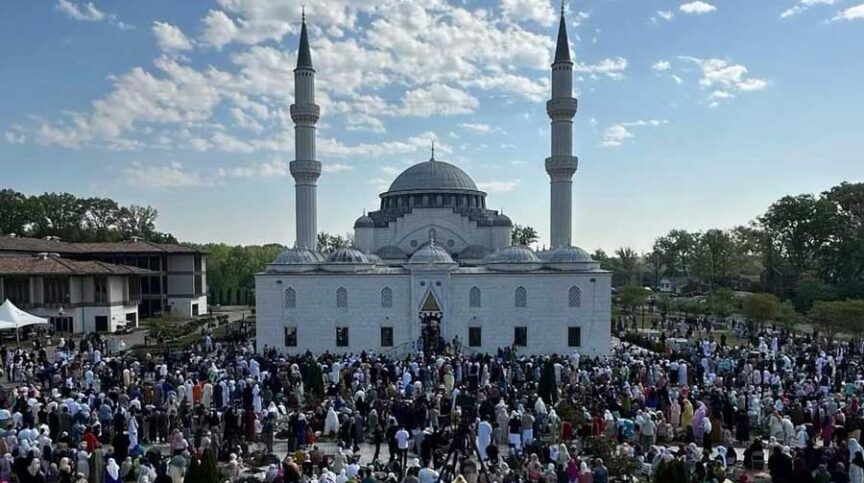Directly or indirectly, we all have role models we look up to and are influenced by. And subconsciously, we may be shaped by people of good or people of evil without realizing the slow changes in our thoughts, speech, appearance, or actions. For a Muslim, it is imperative to be aware of the connectedness of the world and the exposure to mass media and major and minor persons of influence, some representing morality and virtue and some representing wrongdoing and sin. We must regularly remind ourselves that we love Prophet Muhammad (s) more than ourselves and take him as a role model in all aspects of our lives. In fact, Allah the Exalted says, “Indeed, in the Messenger of Allah you have an excellent example for whoever has hope in Allah and the Last Day and remembers Allah often” (Qur’an 33:21).
We claim to take Prophet Muhammad (s) as our role model, but how do we know we’re genuine and sincere in our claims? The following are just a few signs that a believer truly takes Prophet Muhammad (s) as the major role model in his or her life.
A Desire to Please Allah and a Desire for the Afterlife
If you desire the pleasure of Allah and the Hereafter, then you take Prophet Muhammad as a role model, as mentioned in the above verse. That includes exemplifying his lifestyle, loving to resemble him in character, learning about his life, and – perhaps, crucially today – regularly asking ourselves, “Would he approve of my lifestyle if he were visiting me today?”
At school, college, workplace, or home, whether you’re a mother raising children or a father providing for his family, whether you are old or young, ask yourself, “Would Prophet Muhammad (s) approve of my lifestyle, my daily activities, the use of my time, my commitment to improve myself, my behavior toward others?”
The desire to please Allah, for the Muslim, is crucially linked to the life and teachings of Prophet Muhammad (s), and one cannot disconnect the one from the other. It was through the Messenger of Allah (s) that the companions learned in detail how to worship Allah, gain nearness to Him, seek His pleasure, and work for the Afterlife. In fact, it was one of the objectives of the final Messenger (s). Allah (SWT) says, “…And We have sent down to you [O Prophet] the Reminder, so that you may explain to people what has been revealed for them, and perhaps they will reflect” (Qur’an 16:44).
Optimism and Good Assumptions About Allah in All Situations
This life was created as a test for all of us, and our understanding of, and expectations about, life must be aligned with that reality. As Allah (SWT) tells us, “Every soul will experience death; and We test you with difficulty and ease as a trial, and then to Us you will all return” (21:35). In times of hardship, people are tested for their reliance on and commitment to faith. When a challenge comes your way, recognize that you have the strength to get through it, no matter how difficult it is. You will not experience a burden in this world that you cannot carry, as heavy as it is. Some burdens are meant to strengthen the believer, others are a purification of sins and shortcomings, and yet others are blessings in disguise, while some may be a cause of increased ranks to the highest levels of Paradise.
In the midst of hardship, one’s assumptions about Allah are tested. The one who knows Allah well will find it easier to assume good of Him in all situations, and the one who has the wrong notion of God, or any amount of arrogance or ingratitude in their heart, might find it extremely difficult to think positively of God in times of hardship. In fact, the issue known as the “problem of suffering” ultimately goes back to a person’s worldview, their knowledge about who Allah is, and the level of eman that they have cultivated. Thinking negatively about Allah in times of suffering tends to magnify one’s emotional suffering, and it tends to be detrimental to one’s mental state. On the other hand, thinking positively of Allah in times of hardship, remembering that “Allah is All Wise, Allah is testing me, Allah is aware of my hardship and is seeing my patience, etc.” tends to lead to greater resilience, more optimism, and a stronger mental state.
You can certainly endure every trial that comes your way in this world, but that doesn’t mean you necessarily do so with eman, sabr, and remembrance of Allah. That decision is yours to make, and it is more difficult at certain times than other times. Allah SWT provides resources for the believers in this temporary and difficult world to help them overcome their hardships, and one of the greatest tools is the state of one’s mind. Optimism and hope are a part of faith, and pessimism and hopelessness are not.
The Covid-19 pandemic is a hardship that all human beings are experiencing, both on an individual level as well as a shared trial globally. How did you endure this trial at a spiritual level? How did you think about Allah throughout this pandemic? How resilient were you in your everyday life? How disciplined and regular were you in acts of worship despite the emotional ups and downs?
One powerful tool that is always be available to a believer, until their final breath, is that of gratitude. Gratitude assists the believer in all situations as he or she is choosing to focus on their blessings, reflecting on and caring about those who have less in this world, and going above and beyond in showing gratitude toward Allah SWT. Gratitude provides mental resilience, strength, happiness, and a path forward.
Living for the Afterlife
Prophet Muhammad was constantly reminding the ummah about the purpose of life, as well as about the final destinations of the Afterlife. This life, in the sight of Allah, is not worth the wing of a mosquito, except for the fact that it is the location in which we are tested, the place where we can prove our faith. So, it wouldn’t make sense for someone to be so attached to it. This life, we are reminded, is the only opportunity for actions that lead to rewards, while the next life is the life of accountability and compensation, without any opportunity for further actions. This life, the Prophet (s) taught us, is fleeting and quick, so take advantage of every day before your days run out.
Like a traveler sitting beneath a tree for shade, our time in this world is short. Like that traveler, do not become attached to the temporary resting place, for an eternal home of bliss is waiting for you if you take righteous action today. When difficulty struck, Prophet Muhammad referenced Allah and the Afterlife. In times of relative ease, Prophet Muhammad referenced the Afterlife. In the many well-known du’as of the Prophet (s), there was a great deal of emphasis on Paradise and Hellfire.
Therefore, one powerful sign that you take Prophet Muhammad (s) as a role model is that your attention is on the Afterlife, all while managing in a good and orderly way your affairs in this world. Your relationships, work, studies, and even your leisure and rest, are all intended for the sake of Allah and connected to the Afterlife. Nothing you do is without purpose, and no day that passes by should be one to regret on the Day of Judgment. And if you didn’t already start on this journey, then you start today. And if you sinned at times, whether little or much, you repent and find in that solace and resolve to do better.
One of the greatest ways to exemplify this final sign is found in the above-mentioned verse — “…And We have sent down to you [O Prophet] the Reminder, so that you may explain to people what has been revealed for them, and perhaps they will reflect” (16:44). The powerful sign that you take Prophet Muhammad as your role model is that you remember Allah often. Remembrance in this sense is not just in the heart, but on the tongue and in one’s actions. The remembrance of Allah liberates the believer from the shackles of this world; the remembrance of Allah protects the believer against evil and harm from others and from within; the consistent remembrance of Allah results in a stronger connection to Allah’s pleasure and to one’s final destination in the Afterlife.
At the end of it all, we want to look back at this world and know that we did the best that we could with the time given to us by Allah SWT to test us. We want to know that we did our best by following the greatest role model given to us, and that we continued to learn about him throughout our lives and to follow in his footsteps, peace be upon him. And hopefully, if we do so, we’ll find ourselves meeting the blessed Messenger of Allah on the Day of Resurrection with a beautiful smile of approval.





